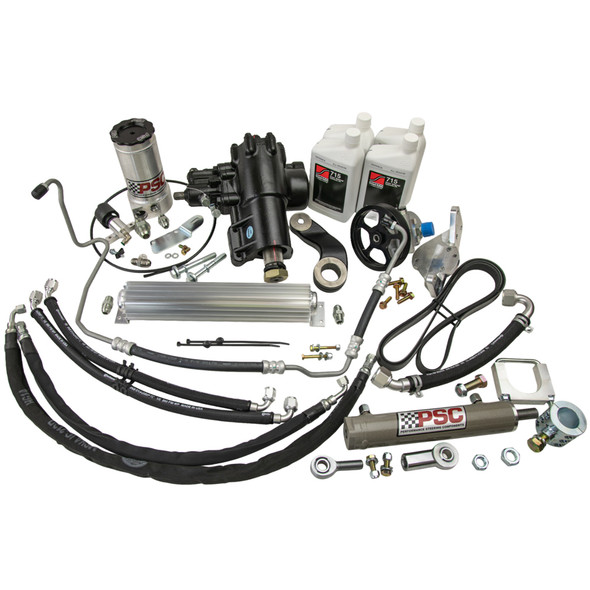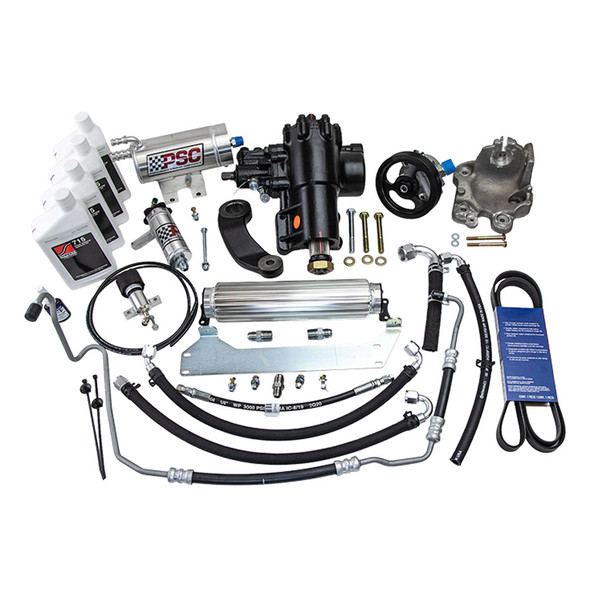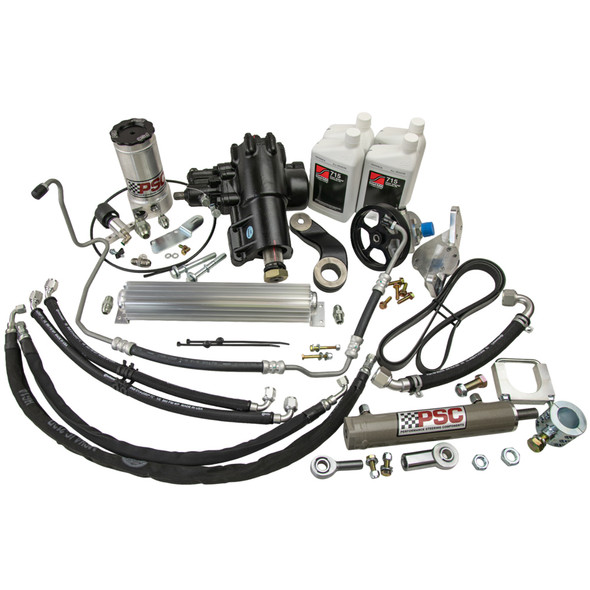Description
The New Jeep JT is equipped with new computer controlled electro-hydraulic steering (EHPS), electronic stability control (ESC), electronic roll mitigation (ERM), and a weight saving aluminum housing steering gearbox.
PSC has taken the Jeep JT steering system back to the drawing board and engineered our exclusive Big Bore XD-JT Steering Gearbox and a traditional belt-driven High Flow Mechanical Power Steering Pump Conversion, producing an essential upgrade to solve the undesirable factory steering performance while able to efficiently handle the increased torque loads due to larger tire sizes and installing aftermarket axle assemblies.
Application:
2020 and Newer Jeep JT Gladiator with 3.6L and Aftermarket Axle
Fits most Aftermarket Axles and Tie Rod Combos including:
Dana Ulitmate D44
Dana Ultimate D60
Dynatrac D44
Dynatrac D60
Teraflex D44
Teraflex D60
For Currie Rock Jock Axles, Contact Us
Application:
2020 and Newer Jeep JT Gladiator with 3.6L and Aftermarket Axle
FEATURES:
- Eliminates excessive on-center steering wheel "play"
- Eliminates electro-hydraulic pump overheating
- Increased Torque Output turns tire sizes over 35"
- Improved turning capability when locking differentials are engaged
INCLUDES:
- Big Bore XD-JT Steering Gear Box
- High Flow Mechanical Pump Conversion Kit
- Jeep JT Reservoir Kit
- Upgraded High Pressure Hose Assembly
- Upgraded Return Line Kit
- Fluid Cooler Kit
- SWEPCO 715 Power Steering Fluid
TECHNICAL NOTES:
WARNING! Use HWK-689-PP hardware kit when installing a Synergy MFG Track Bar and Sector Shaft Brace with this product. Using the SHORTER OEM or the standard 100MM bolts supplied with the XD-JL Steering Gearbox could result in steering gearbox case failure.
The larger size of the BIG BORE XD-JL Steering Gearbox may prohibit the use of some aftermarket track bars.
A Tazer JL Programmer (Tazer JL & Tazer JL MINI) will need to be purchased to override the OEM electro-hydraulic pump functions when installing the PSC High Flow Mechanical Pump Conversion Kit
Positive caster increases align torque, aka the force that straightens the steering wheel when you go forward, which improves straight line stability of the car. Due to the geometry of positive caster this will also increase negative camber gain when turning, which will enable a wider tire contact patch. The caster angle is a major contributor to directional control. An insufficient amount of positive caster angle will decrease driver effort at the steering wheel, but may make the vehicle too sensitive and twitchy, especially as speed increases. To achieve the best on-the-road driving experience, recommended front axle caster setting is 7 degrees positive.






